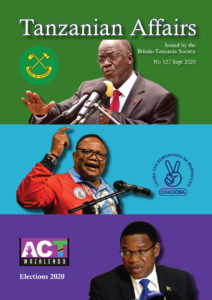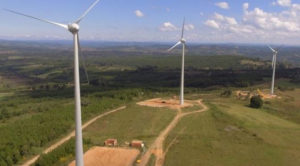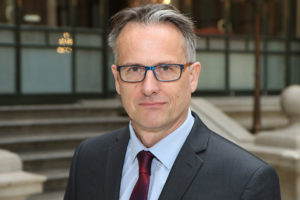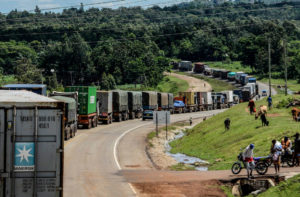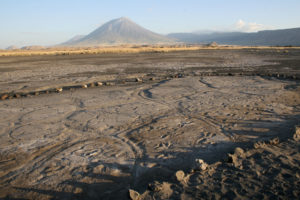by Ben Taylor
General election looms large
With Presidential and Parliamentary elections scheduled for 28th October 2020, the political atmosphere has been tense over recent weeks and months. President Magufuli of the ruling CCM party is seeking reelection for a second five-year term that, under the current constitution, will be his final term. He is opposed by two main opposition candidates; Tundu Lissu of Chadema and Bernard Membe of ACT Wazalendo.
Introducing the candidates
Tundu Lissu is the former president of the Tanganyika Law Society and outspoken critic of President Magufuli. He drew international headlines in September 2017 when he was shot multiple times in daylight by unknown assailants outside his home near the Parliament in Dodoma. To date, nobody has been arrested or charged in connection with the attack. Lissu was airlifted to Nairobi and later to Belgium where he spent nearly three years recovering. He returned to Tanzania in July 2020.
Since 2010, Chadema has been Tanzania’s leading opposition party, at least in mainland Tanzania (CUF has been the largest in Zanzibar), and its presidential candidates, Dr Wilbroad Slaa in 2010 and Edward Lowassa in 2015, achieved vote shares of 27% and 40% respectively. Neither Dr Slaa nor former Prime Minister Lowassa have stayed with Chadema. Lissu has been a prominent party figure since entering formal politics in 2010, acting for much of this time as the party’s legal affairs spokesman, and throughout as a prominent and vocal critic of the government.
Bernard Membe is a former Minister of Foreign Affairs (2007-2015) under President Kikwete. He unsuccessfully sought the CCM nomination for the Presidency in 2015. After losing out on that position to Magufuli, he did not seek re-election as an MP. Over the past five years he has been an occasional but largely underground critic of the President. He was expelled from the party in February 2020, either because he had “violated the party’s ethics and constitution” (according to the party’s Central Committee) or to prevent him from challenging the sitting President for the party’s nomination this year (according to Membe himself).
Shortly after this, he joined ACT Wazalendo, bringing him together with two other political heavyweights in the form of the party’s founder and leader, Zitto Kabwe, and former CUF leader and former Vice President of Zanzibar, Maalim Seif Sharif Hamad.
President Magufuli will be well known to readers by now. He is no stranger to controversy, having attracted considerable international criticism for his tightening of restrictions on the media, civil society, freedom of expression and opposition political parties. He has also attracted criticism for his handling of the economy, with some respected observers recently suggesting that the economy is in a worse condition than the government claims (see Economics section, this issue).
Nevertheless, the President is thought to remain very popular with the general public. He is seen as hard working, dedicated to fighting corruption and getting a better deal for the country from foreign investors. And he has delivered some high-profile projects over the first five years of his presidency, including several new aircraft for a revived Air Tanzania airline, progress on road and bridge building, rail upgrading, and power generation.
Zanzibar
In the isles, the election dynamics will be quite different from the mainland. This has always been the case in the past, where close results, contested results and evidence of manipulated results have been the norm on Zanzibar, ever since multiparty democracy was reintroduced in 1995.
Voters will cast votes both for the President of Tanzania and the President of Zanzibar, but the focus of the campaigns will lie primarily on the latter. In this case, there will be no incumbent as the current president, Ali Mohammed Shein of CCM, is ineligible to run for a third term. Two candidates to replace him are prominent: Hussein Mwinyi of CCM and Seif Sharif Hamad of ACT Wazalendo. And there is a third candidate with little chance of winning but who could nevertheless disrupt the result: Mussa Haji Kombo of CUF.
Hussein Mwinyi is the son of former Tanzanian president, Ali Hassan Mwinyi. He has been an MP since 2000 and has held various ministerial positions over the past twenty years. Most recently, he has been Tanzania’s Minister of Defence since 2014. He won the party’s nomination easily with 79% of the vote.
Seif will contest the Zanzibar Presidency for the sixth time, but for the first time with ACT Wazalendo. His previous campaigns were all under the CUF banner, though he was forced to quit CUF in early 2019 after a power struggle with the party’s former national presidential candidate, Ibrahim Lipumba. However, although he lost the battle for control of CUF with Lipumba, he is widely seen as having won the war, as the vast majority of CUF members and elected officials joined Seif in moving to ACT Wazalendo, either at the same time or in the run up to this year’s campaign. In many cases they even took party offices and furniture with them, arguing that these belonged to individual party members who had let the party use them, rather than to the party itself. As a result, Seif will be the main challenger to CCM.
In contrast, the CUF candidate, Mussa Haji Kombo, is a relative unknown with little following across the isles, who is unlikely to attract more than a few less-engaged voters. Nevertheless, this could perhaps dilute the opposition vote. Given the tight results in previous Zanzibar elections, even a small dilution effect could be enough to affect the result. Indeed, some analysts (and many in ACT Wazalendo) see this as the main reason for the Lipumba faction’s takeover of CUF – that it represents a CCM dirty-tricks effort to divide and weaken the opposition on Zanzibar.
With the official campaigns due to start imminently at the time of writing (September 3rd), there are already signs that the election on Zanzibar will not be entirely free and fair. For example, the number of registered voters has fallen by over 10% compared to 2015. It is claimed that as many as 120,000 potential new voters who turned 18 since 2015 were unable to register due to problems getting Zanzibar identity cards. Further, many – perhaps most – ACT Wazalendo candidates on the isles have had their eligibility challenged by other candidates, including Seif Sharif Hamad himself, largely for minor administrative irregularities, such as using the party’s abbreviated name rather than the full name.
STOP PRESS: As of September 12th, the Zanzibar Electoral Commission cleared Mr Hamad’s candidacy, rejecting the objections that had been raised.
The prospect for opposition parties
Many of the same issues around candidate eligibility and voter registration apply also in mainland Tanzania. Candidates have had eligibility challenged for issues as minor as entering DSM as their residence rather than spelling out Dar es Salaam in full.
Unresolved opposition concerns about the independence of the National Electoral Commission (NEC) lie at the heart of much of this. The controversial 2019 local elections and recent parliamentary and council by-elections, in which many candidates were disqualified even before the campaign began, undermined opposition confidence that NEC would act as an impartial adjudicator. In some cases, however, that experience seems to have prepared opposition parties for this campaign, with candidates going the extra mile to ensure their nomination forms are accepted and parties having legal teams on standby to deal with issues as they arise. Despite this, the CCM Secretary General announced at the end of August that in 18 constituencies, CCM candidates were elected unopposed as all opposition candidates had been disqualified.
In 2015, the major opposition parties joined forces to some extent, running a single candidate for each position so as not to split the opposition vote. That has not happened this time, and ACT and Chadema candidates are likely to draw voters away from each other, both at constituency and presidential level.
Taking a step back, the broader context is likely to make the election a difficult one for opposition party candidates, both at presidential and parliamentary levels. Many political party meetings and rallies have been disrupted or prevented from taking place over the past few years, making it hard for opposition parties to organise themselves and to build public support. Most prominent opposition figures have also spent much of the last three years fighting legal battles, and many have spent time in prison. Policing has become increasingly politicised. Clampdowns on media freedoms and freedom of expression have also created an environment in which newspaper editors and TV and radio producers know that any sign of coverage that criticises the government could lead to a suspension or ban, with potentially severe financial consequences. Even without the government making use of new powers in laws enacted since 2015, many in the media would prefer to err on the side of caution. [See previous issues for details.]
The prospects for CCM
The first previous Tanzanian president to contest re-election since the re-introduction of multiparty democracy, Benjamin Mkapa in 2000, won an increased share of the vote – from 62% to 72%. The second, Jakaya Kikwete in 2010, saw his share decline sharply – from 80% to 63%. In 2015, President Magufuli won with a lower vote share than any of his predecessors: 58%. On the face of it, this looks like he might be more vulnerable than either Mkapa in 2000 or Kikwete in 2010.
Nevertheless, while President Magufuli has drawn strong criticism from opposition politicians, pro-democracy activists both within the country and beyond, western diplomats and western media, he is thought to remain popular among the general population.
The President and CCM can point to a record of some attention-grabbing achievements. In launching his party’s campaign at a rally in Dodoma, President Magufuli said, “I have done a lot and you all are witnesses to this. I’m now asking for your vote to sustain the momentum and deliver new more.”
He listed some of the flagship projects he championed in the past five years as including the construction of standard gauge railway, the Julius Nyerere Hydropower Project at Stiegler’s Gorge that will produce up to 2,115 MW, the increased of number of students joining university and who benefit from study loans, a clampdown on corruption and waste, and the revitalisation of the national airline, ATCL. He has pointed to the country’s new status as a middle-income country (see Economics section, this issue). And he also claimed that energy access has improved from 35% to 85%. “We will keep on taking measures to reduce poverty by stressing on sectors such as agriculture, tourism and mining which employ more people,” he said.
The party’s manifesto highlights six key aims to build on these successes, namely:
i. to protect and strengthen the principles of human dignity, equality, justice and good governance in order to maintain peace, unity and solidarity in the country
ii. to develop a modern, integrated and competitive economy built on the basis of manufacturing, economic services and infrastructure
iii. to revolutionize agriculture, livestock and fisheries to ensure food security and sustainable livelihoods and contribute fully to the development of our country
iv. to enhance access to quality health care, education, water, electricity and decent housing in both rural and urban areas
v. to encourage the use of research, science, technology and innovation as a tool for rapid social and economic development
vi. to create at least eight million jobs in the formal and informal sectors especially for youth.
It goes on to list an eye-catching 6,000km of roads to be constructed and surfaced with tarmac in the coming five years. For context, this is roughly the same as the total amount of paved road Tanzania had in 2013. Promised new projects include widening the Dar-Chalinze highway to eight lanes, ten new flyover junctions in Dar es Salaam similar to the one recently opened at the TAZARA junction, and widening of the road between the airport and the city centre.
Possible outcomes
There is no polling data available that can guide observers on this. Those organisations that have conducted credible polls in the past are either unwilling or unable to do so this time, after opinion surveys have become highly politicised in recent years. The head of one such organisation, Twaweza, Aidan Eyakuze, had his nationality questioned and passport seized after a survey in 2018 that showed a decline in the president’s approval rating [Full disclosure: the editor of Tanzanian Affairs and author of this article, Ben Taylor, also works as a consultant for Twaweza]. As a result, the most recent available survey dates from two and a half years before polling day – effectively useless.
The politicised policing and the tight restrictions on the media, opposition parties and freedom of expression more generally may attract both international attention and the ire of the young, educated, urban-dwelling citizens who form the core support of the opposition parties. But for many citizens and voters, these things matter less than jobs, food on the table, schools and health services that function properly, a sense that a leader is on your side, and even a sense of national pride.
The state of the economy is more contentious. Official data paints a positive picture, but other sources suggest the true situation may not be so rosy [see Economics section, this issue]. Voters are more likely to vote according to their own personal economic realities – do they see job opportunities, do they feel food stress, etc. – than any official government statistics.
The Coronavirus pandemic has largely been neutralised as a factor in this election. While the true state of the outbreak in Tanzania remains unclear, media coverage within the country has almost entirely bought in to the government line that the outbreak has been defeated, and there has not been an overwhelming number of cases on a scale that cannot be dismissed as other issues – pneumonia, heart problems, diabetes, etc. [see next article]. As such, whether or not the pandemic is truly under control in Tanzania, the widespread perception among the public is that it has indeed been dealt with effectively.
Finally, the tightening of democratic space – and possible irregularities in the electoral process itself – do not bode well either for a free and fair election or for the ongoing process of establishing local democratic norms and practices. Further, irregularities and even perceived irregularities can both contribute significantly to heightened tensions and the kind of anger than can boil over into unrest. If the police are seen to be supporting one side over another, that could well make the situation worse.
It is not for this publication to issue any endorsements, or even to make a prediction about the results. We do, however, wish the country well as she goes to the polls. May the election be free and fair, and may it be peaceful.
